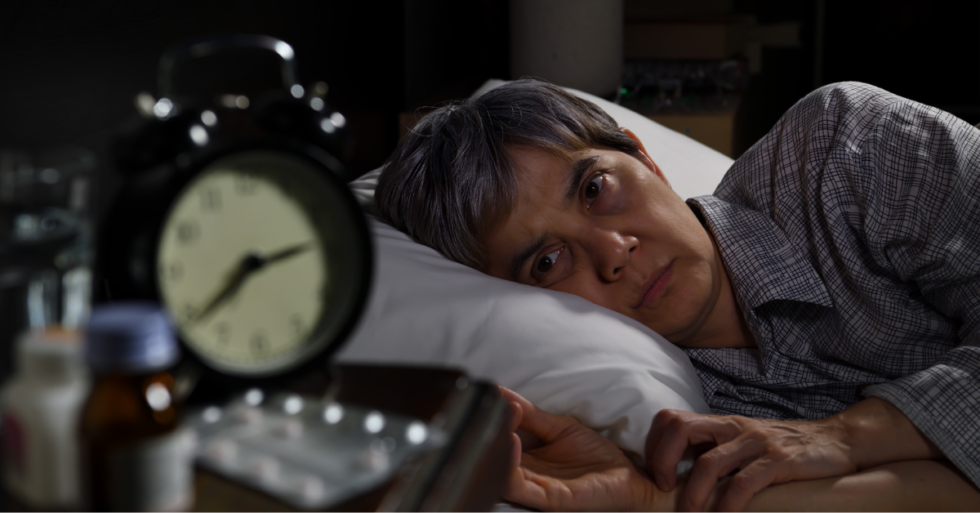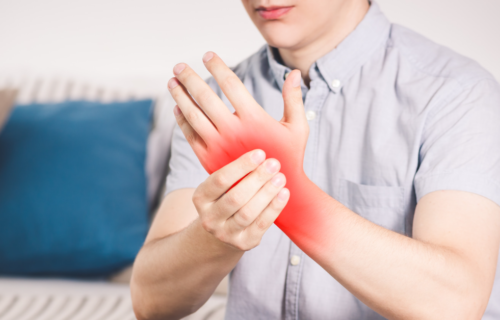
Causes of Chronic Insomnia
Causes of chronic insomnia: Do ever wonder what is actually causing your insomnia?
Here’s what I did to get rid of my insomnia… once and for all. What I learned was that cellular inflammation was contributing to my insomnia, and that cellular inflammation was due to neurotoxicity in my body.
Here me out for a sec…
First, neurotoxins that are everywhere. They get into our cells and cause cellular inflammation…
The result? Of these inflamed cell membranes. The toxins can’t get out of the cells and the nutrients can’t get in.
Even worse… The entire endocrine system malfunctions, because the hormones can’t talk to the cells, since the cell receptors on the cell membranes and so the hormones can’t do their jobs.
This causes.. ALL kinds of dis-ease and chronic health issues. With insomnia, being just one of them. Hormones such as growth hormone, melatonin, cortisol, leptin, and ghrelin are closely associated with the circadian rhythm and sleep cycles. And remember, the hormones can’t “talk” to the cells, because the cell receptors on the cell membranes are inflamed.and don’t function properly.
Hormonal imbalances can significantly impact sleep patterns and lead to insomnia. Here are some key ways in which hormonal fluctuations can cause sleep disturbances:
Cortisol: Cortisol, a hormone produced by the adrenal glands, plays a crucial role in the body’s stress response. Normally, cortisol levels are highest in the morning and gradually decrease throughout the day, reaching their lowest point at night to help facilitate sleep. However, chronic stress or adrenal gland dysfunction can lead to elevated cortisol levels at night, making it difficult to fall asleep and stay asleep.
Melatonin: Melatonin is a hormone produced by the pineal gland that regulates the sleep-wake cycle. It is typically released in response to darkness, signaling to the body that it is time to sleep. Disruptions in melatonin production, due to factors such as exposure to artificial light at night, irregular sleep schedules, or aging, can interfere with sleep onset and quality.
Estrogen and Progesterone: These hormones fluctuate throughout the menstrual cycle and can affect sleep. In the luteal phase (post-ovulation), elevated progesterone levels can have a sedative effect, promoting sleep. However, a drop in progesterone just before menstruation can lead to sleep disturbances. Additionally, low estrogen levels, common during perimenopause and menopause, can cause hot flashes and night sweats, disrupting sleep. Estrogen also has a role in maintaining serotonin levels, which can affect mood and sleep.
Thyroid Hormones: Hyperthyroidism, a condition where the thyroid gland produces too much thyroid hormone, can cause symptoms such as increased heart rate, anxiety, and restlessness, making it difficult to fall asleep and stay asleep. Hypothyroidism, on the other hand, can lead to fatigue and excessive sleepiness but may also cause sleep disturbances due to symptoms like muscle cramps and joint pain.
Insulin: Insulin is a hormone that regulates blood sugar levels. Insulin resistance or poor blood sugar control can lead to fluctuating blood sugar levels, which can cause nighttime awakenings and poor sleep quality. High blood sugar levels can lead to frequent urination, while low blood sugar levels can cause hunger and discomfort, both of which can disrupt sleep.
These hormonal imbalances can create a vicious cycle where poor sleep further exacerbates hormonal disruption, leading to ongoing insomnia and other health issues. Addressing the underlying hormonal imbalances through lifestyle changes, medical intervention, and stress management can help improve sleep quality.
So if you also struggle with insomnia, falling asleep, waking up too early or too late, then I’d recommend you take this Neurotoxicity Assessment quiz: https://everydayneurotoxins.com/
And let me know if you have ANY questions at all
I am Donna, I’m a Wellness Coach. I am my own case study with detoxing, and I was so thrilled about my health improvements, I decided I had to make it my mission
to share my results and what I did to get them with as many others as possible.
#simplylivingwellness #CausesofChronicInsomnia




Add A Comment